Watch Out for Deer on VA Roads: How to Stay Safe as the Days Get Shorter
If fall is your favorite season, you’re not alone—the kids go back to school, and it’s a time for pumpkin patches and cozy sweaters. This is also the busiest time of year for deer, meaning that you’re at a heightened risk of a deer-related car accident on Virginia roads. Learn more about how common deer accidents are in Virginia and how to protect yourself. If you’ve been injured in a crash, you may have a personal injury claim against the liable party—call Olmstead & Olmstead at 703-260-8752 to discuss your case in greater detail.
Expect Heightened Deer Activity in Autumn
Deer are an incredibly common sight on Virginia roads, causing thousands of crashes, hundreds of deaths, and multiple fatalities every year. Per local news sources, 2022 saw more than 600 deer collisions in Virginia. Over half of those were in the last three months of the year, highlighting just how dangerous this time of year really is.
Perhaps the biggest factor in deer activity in autumn is mating season. Fall marks the start of mating season, meaning that deer are on the move looking for potential mates. Their behavior tends to be very unpredictable, but as a general rule, they are most active at dawn and dusk. Unfortunately, this coincides with the times that many drivers are headed to and from work.
Seasonal migration is another contributing factor to deer activity at this time of year. This isn’t the case across the country or across all types of deer, but it’s still something to consider. When you add in the start of hunting season, a time of year that notoriously disturbs deer populations and pushes them out of their usual habitats, it’s no wonder that drivers see more deer in fall than they do in the rest of the year combined.
The Dangers of Deer Accidents
Deer accidents can cause a wide range of issues for drivers. Physical injury is a possible outcome, particularly in crashes on high-speed roads. While some victims walk away with minor bumps and cuts, others suffer whiplash, broken bones, and even traumatic brain injuries.
Vehicle damage is basically unavoidable when you hit a deer. Deer accidents cause massive amounts of vehicle damage, leading to totaled vehicles in many cases. Drivers report broken headlights, dented fenders, and shattered windshields. Getting these repairs covered can be difficult; while many insurance policies do cover wildlife-related damage, it’s not always easy to prove that your vehicle damage is the result of a deer crash. It’s important to review your insurance policy as fall rolls around and know what type of proof the insurance company requires in these cases.
Secondary accidents are another serious danger for drivers and passengers. If a deer accident is serious enough that you can’t move your vehicle out of the road, it’s possible that other vehicles will hit it—especially if it’s dark outside. This can lead to pile-ups and severe injuries.
Take Steps to Protect Yourself
As a driver, there’s a lot you can do to protect yourself, prevent accidents, and take the right steps if an accident does occur. Some of our most important tips include:
- Stay alert while driving. The more alert you are, the quicker you can react to a deer entering the roadway.
- Use high beams at night. If you must drive at night, use your high beams if you are on the road alone. Just make sure to go back to your normal headlights when another vehicle approaches. Your high beams can help you see deer much earlier than you would using your headlights.
- Stay in your lane if a deer crosses your path. Swerving out of your lane can cause more serious collisions. Instead, brake hard and honk to frighten the deer away from your vehicle.
- Watch out for deer crossing signs. These signs mark the areas where deer have been observed crossing. Be incredibly cautious in these areas and drive slowly.
Injured in a Crash? Call Olmstead & Olmstead Today
While most deer-related accidents are just bad luck, some may be the result of another party’s negligence. Find out if you have a valid personal injury claim—call Olmstead & Olmstead at 703-260-8752 or contact us online to set up a free consultation.

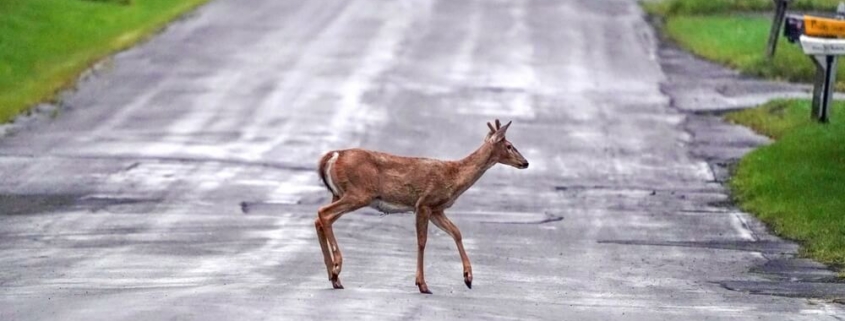
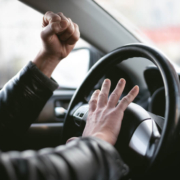
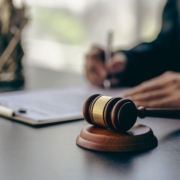
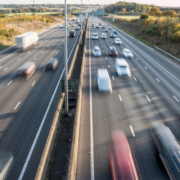
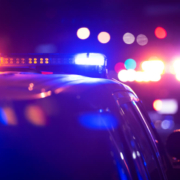
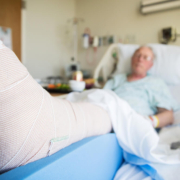
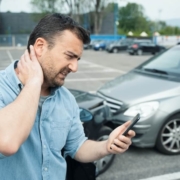
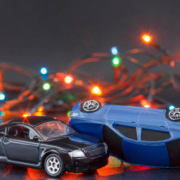
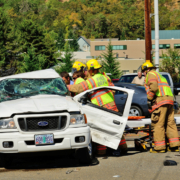



Leave a Reply
Want to join the discussion?Feel free to contribute!